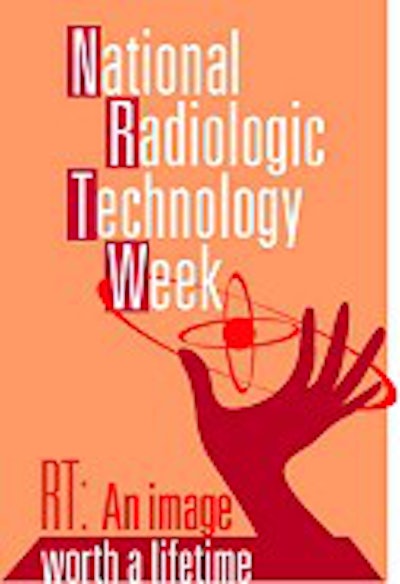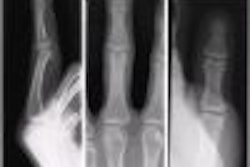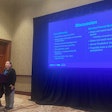
AuntMinnie.com presents Part I of a two-part series on traveling radiologic technologists.
A 15% vacancy rate for radiologic technologist positions in the U.S. has created a new cottage industry for RTs who are willing to relocate for short-term assignments. Traveling RTs can satisfy their wanderlust while raking in a salary up to 50% higher than that of their permanent counterparts.
Demand is high for traveling RTs in all specialty areas, said Carlos Hagler, director of operations for allied staffing at CompHealth in Fort Lauderdale, FL.
"There’s a shortage of people going into training programs, and there are more RTs retiring every year," he said. "Imaging volumes are increasing, and people who are specialized in CT, MRI, radiation therapy, and mammography are in especially high demand."
Since many RTs sign on with multiple staffing agencies for traveler positions -- and because most hospitals use a combination of registry and travelers to fill staffing needs -- it’s not known how much of the current workforce traveling RTs represent. But most large community hospitals and academic centers are providing full services only because they are hiring travelers, said Kathy Tabor-McEwan, a senior radiology manager at Massachusetts General Hospital in Boston, who handles contracts for temporary and permanent staff.
Traveling shoes may not fit all RTs. The life can be lonely and the work demanding. Travelers can sometimes find themselves working in unfriendly environments where they are resented by coworkers. The key quality of any RT considering the traveling life is flexibility, Hagler said.
"You walk into a facility where you don’t know a soul, receive your orientation, and have to fit into that hospital environment," he said. "You can’t try to change everything the hospital is doing. Flexibility and people skills are a big part of the job."
Typically, staffing agencies work with RTs and hospitals to ensure the right match. Most assignments last three months. During that time, a good agency will also conduct regular follow-up phone calls to make sure both travelers and the hospital are happy with each other.
Denise Barron-Potter worked as a traveling mammographer for four years before taking time off to study radiation therapy. She plans to do it again once her education is complete. Barron-Potter echoes the need for flexibility.
"I love traveling because it’s a great learning experience -- if you have an open mind," she said. "Being able to work with different doctors, technologists, and equipment has made me a better mammographer. I’ve been able to share my knowledge with others at each facility where I’ve worked."
That sentiment is shared by numerous other traveling RTs who contributed comments -- anonymously -- to this AuntMinnie.com story.
"I’ve traveled for one year now and have never loved my chosen profession more," wrote one RT via e-mail. Another commented, "The pros outweigh the cons by pounds."
But travelers do need to step lightly in fractious environments, added another RT via e-mail.
"Overworked techs, underpaid techs, poor management, new management, union versus non-union, there are any number of issues going on at the facilities where you will work," she wrote. "The difference is, as a traveler, these are not your problems."
Staffing agencies have an obligation to make sure hospitals are hiring travelers for the right reasons, not simply to cover the shifts that no one else wants.
"Travelers have to be treated with respect and as part of the team, and 99% of the time they are," Hagler said. "Hospitals really do appreciate travelers because without them, their employees would be working overtime, shifts would be shortened, and procedures delayed."
Would-be travelers should make sure to thoroughly vet prospective employers, Barron-Potter said, with a range of questions that span everything from onsite equipment to work shifts that need coverage. Obtain as many details about the position as possible, she said. For example, if the job involves rotating among multiple areas, be upfront about your skills in a range of environments.
"Honesty is always the best policy, even if it means losing an opportunity," Barron-Potter said. "Three months can be awfully long if you put yourself in a miserable position."
Consider the intangibles as well, Barron-Potter said. Be realistic about your comfort level when it comes having qualifications questioned. Travelers must be able to adapt to change -- and the multiple different protocols that will be encountered at each facility.
Not all staffing agencies are created equal. Be sure to compare the benefits of each before signing on. Some provide healthcare benefits from day one; at other agencies, these don’t kick in for 90 days. A number of agencies also offer retention bonuses as well as 401(k) plans.
Finally, consider all the pros and cons before leaving your permanent job, Barron-Potter cautions. It’s important to understand the motivation for becoming a traveler.
"If it’s to escape a bad job or coworker, you will definitely run into the same situation elsewhere," she said.
By Deborah R. DakinsAuntMinnie.com contributing writer
November 4, 2002
Tomorrow: Traveling RTs a costly stop-gap for radiology administrators
Related Reading
Radiology extenders -- the answer to the RT personnel shortage?, September 19, 2002
Kind words, small awards can keep employees loyal, September 11, 2002
University of Michigan trims employee turnover without breaking the bank, August 1, 2002
Copyright © 2002 AuntMinnie.com

















